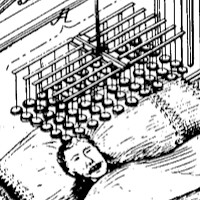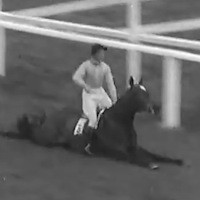Presidential Impeachments

In the United States, impeachment of high-ranking government officials is often used as a last resort or for the more egregious crimes. To date, there have only been two Presidents impeached—Bill Clinton and Andrew Johnson. Despite popular belief, Richard Nixon resigned before impeachment proceedings could begin and President Ford granted him a pardon.
What is Impeachment?
According to dictionary.com, impeach means “to accuse (a public official) before an appropriate tribunal of misconduct in office.” In the usage note towards the bottom of the page, it states that simply because an official is impeached does not mean they are removed from office. The first step in the process is impeachment (charges filed), followed by a trial, followed by conviction or acquittal. When we banter about how we’d like to see an official ‘impeached,’ typically, we are referring to forcibly removing the official from office—whether by trial or by resignation.
Andrew Johnson, May 26, 1868
Widely regarded as one of the worst Presidents in U.S. history, President Andrew Johnson had two attempts of impeachment against him. The first was in November of 1867. Johnson, not aligned with either the Democrats or Republicans, vehemently opposed the Civil Rights bills introduced by the Republicans at the time. His desire was to keep the United States a country “for white men,” and a “government for white men.” The House Judiciary committee drafted a bill of impeachment with hundreds of complaints against Johnson. After a furious debate, the House of Representatives overruled the proceedings.
The second attempt came in March of 1868. The action that generated the impeachment proceedings was a violation of the Tenure of Office Act. The Tenure of Office Act was introduced by Congress to protect Secretary of War, Edwin Stanton. Johnson had wanted to replace Stanton and had vetoed the Act. Congress overruled the veto and enacted the law. It stripped the unlimited power of the President to replace Cabinet members at will, stating that before an official was removed from office, a replacement had to already be appointed and voted upon. Johnson vetoed the act on the grounds that it was unconstitutional (in 1926, the Supreme Court agreed). So, he ousted Stanton and replaced him with Adjutant-General Lorenzo Thomas.
The Senate brought the impeachment charges to the floor for debate. The proceedings took approximately three months to complete. The Senate then took three votes—one on May 16, and the other two on May 26. Each vote ended with a 35-19 result—one vote shy of the required 2/3 majority to remove him from office. His impeachment and trial ended with an acquittal.
Bill Clinton, December 19, 1998
Clinton’s Presidency was rife with controversies. From the Whitewater scandal, to Monica Lewinsky, to sexual harassment charges from when he was the governor of Arkansas, President Clinton had a lot going on. Kenneth Starr requested and was granted permission to conduct an independent investigation into the seeming abuse of power Clinton had demonstrated. As Starr dug deeper, he uncovered more than he had bargained for. Clinton maintained—under oath—that he did not have sexual relations with Monica Lewinsky. Starr’s investigation provided evidence to the contrary which meant that Clinton was guilty of perjury and obstruction of justice.
The House Judiciary Committee offered no investigation of its own, but began impeachment proceedings in November 1998, after the elections. Speaker-designate Bob Livingston (who was to replace Newt Gingrich as Speaker of the House), announced his resignation from Congress for his infidelity to his wife and urged Clinton to resign from his office, as well. Clinton chose to remain in his seat and urged Livingston to reconsider. Clinton was impeached with the passing of House Resolution 611 on grounds of perjury to a grand jury and obstruction of justice.
The Senate, however, failed to convict and remove Clinton from office. On the charge of perjury before a grand jury, the Senate voted 45:55 “not guilty,” and on the charge of obstruction of justice, 50:50. They needed 67 votes to convict and remove him from office.
Richard Nixon, July 27, 1974
If ever there was a more controversial President in the 20th Century than Bill Clinton, it was Richard Nixon. The Watergate scandal shrouded his Presidency and haunted him for a very long time. His staff, his campaign aide, his lawyer, even appointments of his to the CIA and other positions were being indicted left and right for perjury. Nixon, however, continued to deny any involvement in the Watergate scandal. On July 27, 1974, the House Judiciary Committee voted 27:11 to recommend the first article of impeachment—perjury—against President Nixon. July 29, they passed the recommendation for the second charge, abuse of power; and on July 30, the third charge, contempt of Congress.
The “smoking gun” in the case was the previously unreleased tape of Nixon conspiring with Halderman to involve the CIA by having them falsely inform the FBI that there was a threat to national security. Those who had voted against the articles of impeachment began to change their opinions. Throughout all of it, Nixon maintained his lack of involvement. It was not until key Republican Senators informed him that there were enough votes to convict and remove him from office that Nixon chose to resign.
Upon his resignation, the impeachment proceedings were dropped. However, he could still have been tried, criminally. When Vice President Gerald Ford assumed the Presidency, he granted Nixon a pardon to prevent him from being tried. Nixon maintained his innocence until his death in 1994.
Conclusions
Only two U.S. Presidents have been impeached, successfully. Three have had proceedings brought against them, but, as noted, Nixon resigned from office before the final vote was cast, which would have removed him from office. The House has brought 62 impeachment proceedings against officials since 1789, and only 16 Federal officials have been impeached.
For more information, please view the following sites:
Impeachment wiki
Andrew Johnson wiki
Bill Clinton’s Impeachment wiki
Watergate Scandal wiki
What is Impeachment?
According to dictionary.com, impeach means “to accuse (a public official) before an appropriate tribunal of misconduct in office.” In the usage note towards the bottom of the page, it states that simply because an official is impeached does not mean they are removed from office. The first step in the process is impeachment (charges filed), followed by a trial, followed by conviction or acquittal. When we banter about how we’d like to see an official ‘impeached,’ typically, we are referring to forcibly removing the official from office—whether by trial or by resignation.
Andrew Johnson, May 26, 1868
Widely regarded as one of the worst Presidents in U.S. history, President Andrew Johnson had two attempts of impeachment against him. The first was in November of 1867. Johnson, not aligned with either the Democrats or Republicans, vehemently opposed the Civil Rights bills introduced by the Republicans at the time. His desire was to keep the United States a country “for white men,” and a “government for white men.” The House Judiciary committee drafted a bill of impeachment with hundreds of complaints against Johnson. After a furious debate, the House of Representatives overruled the proceedings.
The second attempt came in March of 1868. The action that generated the impeachment proceedings was a violation of the Tenure of Office Act. The Tenure of Office Act was introduced by Congress to protect Secretary of War, Edwin Stanton. Johnson had wanted to replace Stanton and had vetoed the Act. Congress overruled the veto and enacted the law. It stripped the unlimited power of the President to replace Cabinet members at will, stating that before an official was removed from office, a replacement had to already be appointed and voted upon. Johnson vetoed the act on the grounds that it was unconstitutional (in 1926, the Supreme Court agreed). So, he ousted Stanton and replaced him with Adjutant-General Lorenzo Thomas.
The Senate brought the impeachment charges to the floor for debate. The proceedings took approximately three months to complete. The Senate then took three votes—one on May 16, and the other two on May 26. Each vote ended with a 35-19 result—one vote shy of the required 2/3 majority to remove him from office. His impeachment and trial ended with an acquittal.
Bill Clinton, December 19, 1998
Clinton’s Presidency was rife with controversies. From the Whitewater scandal, to Monica Lewinsky, to sexual harassment charges from when he was the governor of Arkansas, President Clinton had a lot going on. Kenneth Starr requested and was granted permission to conduct an independent investigation into the seeming abuse of power Clinton had demonstrated. As Starr dug deeper, he uncovered more than he had bargained for. Clinton maintained—under oath—that he did not have sexual relations with Monica Lewinsky. Starr’s investigation provided evidence to the contrary which meant that Clinton was guilty of perjury and obstruction of justice.
The House Judiciary Committee offered no investigation of its own, but began impeachment proceedings in November 1998, after the elections. Speaker-designate Bob Livingston (who was to replace Newt Gingrich as Speaker of the House), announced his resignation from Congress for his infidelity to his wife and urged Clinton to resign from his office, as well. Clinton chose to remain in his seat and urged Livingston to reconsider. Clinton was impeached with the passing of House Resolution 611 on grounds of perjury to a grand jury and obstruction of justice.
The Senate, however, failed to convict and remove Clinton from office. On the charge of perjury before a grand jury, the Senate voted 45:55 “not guilty,” and on the charge of obstruction of justice, 50:50. They needed 67 votes to convict and remove him from office.
Richard Nixon, July 27, 1974
If ever there was a more controversial President in the 20th Century than Bill Clinton, it was Richard Nixon. The Watergate scandal shrouded his Presidency and haunted him for a very long time. His staff, his campaign aide, his lawyer, even appointments of his to the CIA and other positions were being indicted left and right for perjury. Nixon, however, continued to deny any involvement in the Watergate scandal. On July 27, 1974, the House Judiciary Committee voted 27:11 to recommend the first article of impeachment—perjury—against President Nixon. July 29, they passed the recommendation for the second charge, abuse of power; and on July 30, the third charge, contempt of Congress.
The “smoking gun” in the case was the previously unreleased tape of Nixon conspiring with Halderman to involve the CIA by having them falsely inform the FBI that there was a threat to national security. Those who had voted against the articles of impeachment began to change their opinions. Throughout all of it, Nixon maintained his lack of involvement. It was not until key Republican Senators informed him that there were enough votes to convict and remove him from office that Nixon chose to resign.
Upon his resignation, the impeachment proceedings were dropped. However, he could still have been tried, criminally. When Vice President Gerald Ford assumed the Presidency, he granted Nixon a pardon to prevent him from being tried. Nixon maintained his innocence until his death in 1994.
Conclusions
Only two U.S. Presidents have been impeached, successfully. Three have had proceedings brought against them, but, as noted, Nixon resigned from office before the final vote was cast, which would have removed him from office. The House has brought 62 impeachment proceedings against officials since 1789, and only 16 Federal officials have been impeached.
For more information, please view the following sites:
Impeachment wiki
Andrew Johnson wiki
Bill Clinton’s Impeachment wiki
Watergate Scandal wiki
You Should Also Read:
Japan's Abe Sada (May 21, 1936)
J. Edgar Hoover FBI Director (May 10, 1924)
Assassination of Lincoln (April 14, 1865)

Related Articles
Editor's Picks Articles
Top Ten Articles
Previous Features
Site Map
Content copyright © 2023 by Christa Mackey. All rights reserved.
This content was written by Christa Mackey. If you wish to use this content in any manner, you need written permission. Contact Lane Graciano for details.







